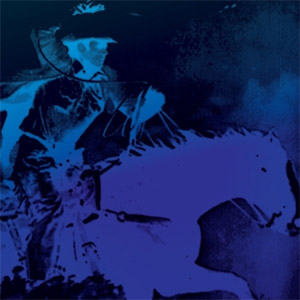Tim Hecker & Daniel Lopatin Instrumental Tourist
The past few years have seen both Tim Hecker and Daniel Lopatin (a.k.a. Oneohtrix Point […]

The past few years have seen both Tim Hecker and Daniel Lopatin (a.k.a. Oneohtrix Point Never) making big waves within the relatively intimate confines of ambient electronic music. Each has attracted, quite rightly, no shortage of critical respect and a steady flow of new listeners thanks to impressive solo outings—Lopatin for the confrontational synth experiments of Returnal and the atmospheric collages of Replica, and Hecker for his high-concept, beautifully textured Ravedeath, 1972. As such, it’s hard not to see the potential in a collaborative project from the pair. Unfortunately, Instrumental Tourist frequently fails to live up to that potential. Despite scattered flashes of brilliance, too often it’s an album that feels unambitious, as though it’s content to dwell in the middle ground where the two producers’ back catalogs intersect rather than forge something new.
Whereas each artist’s recent solo endeavours have come across as detailed, meticulously thought-out works, Instrumental Tourist is an intentionally looser, free-flowing affair. For its conception, the pair opted to head into the studio with as little preparation as possible, relying instead on jazz-inspired methods of improvisational composition and a sound palette exploring (in their words), “the acoustic resonance of digitally sourced instruments of the world.” Herein, it seems, lies the album’s main weakness; while the desire to try more ambitious methods of working is entirely admirable, one can’t help but feel that this jam-session approach fails to get best out of either artist. When in top form, both Hecker and Lopatin create soundscapes that are capable of regularly surprising and challenging the listener, but here, it’s often easy to pinpoint where each artist is falling back on familiar ideas and previous successes. The chaotic, digital distortion of “Intrusions,” for example, bears a notable resemblance to Returnal opener “Nil Admirari,” while “Vaccination (for Thomas Mann)” plays out like a digitized rework of the choral atmospherics Hecker used throughout Ravedeath, 1972. Crucially, the music throughout Instrumental Tourist unfolds slowly and somewhat predictably, creating textures that are more often soothing rather than surprising, and as a result, it’s very easy for the listener to let the whole album drift by without ever really engaging with it.
It would be unfair to imply that the record is entirely without its charms though. Opener “Uptown Psychedelia” hits upon some moments of genuine greatness as the hollow twang of (what sounds like) the slap-bass preset of some retro sound module bursts through layers of distorted digital drone. The brilliantly titled “Racist Drone” treads similarly interesting territory, breaking up the melancholy hum of a cheap-sounding synth pad with repeat aggressive interjections from a vaguely oriental-sounding synthesized instrument. Meanwhile, listening to the weary, nostalgic melody of “Ritual for Consumption” fight an ultimately futile battle against a growing wave of digital static is genuinely mesmerizing. Still, for the most part these snatches of brilliance merely emphasize the missed opportunities elsewhere on the album. There’s certainly plenty of potential in combining the skills of Hecker and Lopatin, but ultimately, Instrumental Tourist fails to live up to the sum of its impressive parts.

